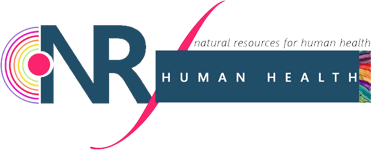About the Journal
Editorial Board
Editorial Office and Publisher
Ownership
Article Processing Charge
Open Access and Licensing
Personal Data Protection
Terms and Conditions: Cookie policy and Privacy policy
Copyright and Copyright Transfer Agreement
Visagaa Publishing House Repository Policy
Visagaa Publishing House CrossMark Policy
The Initiative for Open Citations (I4OC)
Archiving
Plagiarism Policy
Online first
Current issue
Archive
Ethics Statements for Natural Resources for Human Health
Ethical Guidelines
Post-Publication Policies
Responsibilities of Editors and Publishers
Conflict of Interest Statements for Natural Resources for Human Health
Human and Animal Rights Policy
Complaints and Appeals Policy
Allegations of Research Misconduct Policy
Authorship and Contributorship Policy
Publication Ethics and Malpractice Policy
Ethics approval and informed consent
Guidelines for the Use of Generative AI and AI-Assisted Technologies in Manuscripts for Natural Resources for Human Health
For authors
Instructions for Authors
Submitting manuscript – step by step
Authorship and Contributor Guidelines
For reviewers
The peer-review process
Recognition for Reviewers
Visagaa Author Services
About the Journal
Editorial Board
Editorial Office and Publisher
Ownership
Article Processing Charge
Open Access and Licensing
Personal Data Protection
Terms and Conditions: Cookie policy and Privacy policy
Copyright and Copyright Transfer Agreement
Visagaa Publishing House Repository Policy
Visagaa Publishing House CrossMark Policy
The Initiative for Open Citations (I4OC)
Archiving
Plagiarism Policy
Ethics Statements for Natural Resources for Human Health
Ethical Guidelines
Post-Publication Policies
Responsibilities of Editors and Publishers
Conflict of Interest Statements for Natural Resources for Human Health
Human and Animal Rights Policy
Complaints and Appeals Policy
Allegations of Research Misconduct Policy
Authorship and Contributorship Policy
Publication Ethics and Malpractice Policy
Ethics approval and informed consent
Guidelines for the Use of Generative AI and AI-Assisted Technologies in Manuscripts for Natural Resources for Human Health
Plagiarism Policy
Natural Resources for Human Health, a peer-reviewed journal by Visagaa Publishing House, strictly adheres to ethical publishing practices. This policy outlines our commitment to preventing plagiarism and maintaining the integrity of the scientific record.
Definition of Plagiarism
Plagiarism is the unethical practice of using someone else's work, ideas, or expressions without proper acknowledgement. It includes, but is not limited to:
Direct Plagiarism: Copying text word-for-word from another source without attribution.
Self-Plagiarism: Reusing significant portions of one's previously published work without citing the original source.
Mosaic Plagiarism: Borrowing phrases from a source without using quotation marks or finding synonyms for the author’s language while keeping to the same general structure and meaning as found in the original.
Accidental Plagiarism: Unintentionally failing to cite sources or misquoting them due to carelessness or lack of knowledge about proper citation practices.
Plagiarism Detection
All submissions to Natural Resources for Human Health are initially screened for duplication and similarity using the iThenticate software. This step is crucial to ensure that the content is original and free from unethical practices.
Editorial Procedure
Initial Screening: The editorial administrator screens each submitted manuscript for duplication and similarity using iThenticate.
Rejection of Non-Compliant Manuscripts: Manuscripts that do not meet the required standards for originality are rejected outright without being forwarded to the Editor-in-Chief for further scientific assessment.
Notification of Misconduct: In cases of identified scientific misconduct, including plagiarism of text, tables, or figures, the corresponding author’s institution will be notified.
Types of Plagiarism and Actions
Minor Plagiarism: Involves small text segments without proper citation.
Action: Authors will be asked to correct and properly cite the sources.
Major Plagiarism: Involves large portions of the text, data, or figures copied without acknowledgment.
Action: The manuscript will be rejected, and the authors may be prohibited from submitting future manuscripts. The corresponding
author's institution will be notified.
Author Responsibilities
Authors must ensure that:
Editorial Responsibilities
The editorial team is responsible for:
Consequences of Plagiarism
Before Publication: Detected plagiarism before publication will result in the rejection of the manuscript and notification of the corresponding author's institution.
After Publication: If plagiarism is discovered post-publication, the article will be retracted, a retraction notice will be issued, and the author’s institution will be informed.
Natural Resources for Human Health is committed to upholding the highest standards of integrity in publishing. By following this plagiarism policy, we aim to foster a culture of honesty and transparency in academic research.
Definition of Plagiarism
Plagiarism is the unethical practice of using someone else's work, ideas, or expressions without proper acknowledgement. It includes, but is not limited to:
Direct Plagiarism: Copying text word-for-word from another source without attribution.
Self-Plagiarism: Reusing significant portions of one's previously published work without citing the original source.
Mosaic Plagiarism: Borrowing phrases from a source without using quotation marks or finding synonyms for the author’s language while keeping to the same general structure and meaning as found in the original.
Accidental Plagiarism: Unintentionally failing to cite sources or misquoting them due to carelessness or lack of knowledge about proper citation practices.
Plagiarism Detection
All submissions to Natural Resources for Human Health are initially screened for duplication and similarity using the iThenticate software. This step is crucial to ensure that the content is original and free from unethical practices.
Editorial Procedure
Initial Screening: The editorial administrator screens each submitted manuscript for duplication and similarity using iThenticate.
Rejection of Non-Compliant Manuscripts: Manuscripts that do not meet the required standards for originality are rejected outright without being forwarded to the Editor-in-Chief for further scientific assessment.
Notification of Misconduct: In cases of identified scientific misconduct, including plagiarism of text, tables, or figures, the corresponding author’s institution will be notified.
Types of Plagiarism and Actions
Minor Plagiarism: Involves small text segments without proper citation.
Action: Authors will be asked to correct and properly cite the sources.
Major Plagiarism: Involves large portions of the text, data, or figures copied without acknowledgment.
Action: The manuscript will be rejected, and the authors may be prohibited from submitting future manuscripts. The corresponding
author's institution will be notified.
Author Responsibilities
Authors must ensure that:
- Their work is original.
- All sources are properly cited.
- All co-authors have approved the final version of the manuscript and agreed to its submission.
Editorial Responsibilities
The editorial team is responsible for:
- Educating authors on proper citation practices.
- Conducting thorough plagiarism checks.
- Taking appropriate action when plagiarism is detected.
Consequences of Plagiarism
Before Publication: Detected plagiarism before publication will result in the rejection of the manuscript and notification of the corresponding author's institution.
After Publication: If plagiarism is discovered post-publication, the article will be retracted, a retraction notice will be issued, and the author’s institution will be informed.
Natural Resources for Human Health is committed to upholding the highest standards of integrity in publishing. By following this plagiarism policy, we aim to foster a culture of honesty and transparency in academic research.
We process personal data collected when visiting the website. The function of obtaining information about users and their behavior is carried out by voluntarily entered information in forms and saving cookies in end devices. Data, including cookies, are used to provide services, improve the user experience and to analyze the traffic in accordance with the Privacy policy. Data are also collected and processed by Google Analytics tool (more).
You can change cookies settings in your browser. Restricted use of cookies in the browser configuration may affect some functionalities of the website.
You can change cookies settings in your browser. Restricted use of cookies in the browser configuration may affect some functionalities of the website.


